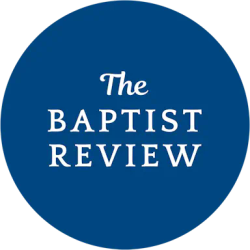Recently, the Southern Baptist Convention released the annual reports from each of its twelve entities. In these reports, each agency or institution reported on a variety of standard expectations. Some reports were more in-depth than others. For example, the seminaries provided their ATS report, which included some required financial reporting. In contrast, Lifeway Christian Resources provided no financial information, and GuideStone Financial Resources provided a one-page financial report (though they provide many more financial disclosures on their website).
What becomes striking about these reports is that the disclosure across all of them falls dramatically short of the standard that secular nonprofit organizations hold to in the United States. Granted, the IRS provides each of our entities with a religious exemption, so they are not legally bound to report any financial information. However, for organizations that are given direct stewardship over resources provided by the many member churches and individual members, the lack of transparent disclosure of finances and personnel matters stands in stark contrast to comparable non-SBC and even non-Christian organizations.
Over the last few years, there has been a growing campaign for these agencies and institutions to open their books. This movement is being driven in part by pastors, many of whom have their salary and benefits figures published and voted on by their congregations. Yet, as Southern Baptists have experienced, many of these attempts for comparable transparency by their agencies and institutions have been blocked, even amid reports of significant financial losses and decades-long financial mismanagement by these same agencies and institutions.
The Value of Transparency
A little over a year ago, I was considering how to invest some money and began evaluating several stocks. In my research, I looked at some key financial data and applied metrics and ratios to see what stock might be a good choice. As I narrowed down to two stocks, I found something concerning: the CEO of one company and his executive team were taking significant salaries, contributing to a cash shortage, and executives were selling many of their own shares of the company's stock. Big red warning lights flashed, and I bought stock in the other company. A year later, the first company saw its stock price crash, and the stock I chose saw reasonable growth. Seeing the details of the first company's position made all the difference for my choice.
There are good reasons why these companies, who are publicly traded, have to disclose copious amounts of financial records. Following the Great Depression, numerous laws, notably the Securities Act of 1933 and the Securities Exchange Act of 1934, with many others to follow, codified the legal requirements for publicly traded companies' disclosure. For all investors, these records are free and can be publicly accessed.
On the opposite side of the profit sector, nonprofit organizations also have a similar requirement for publicly disclosed financial documents. The most basic of these documents is the IRS Form 990, which provides financial details of the previous year's operations for a nonprofit organization. A Form that has existed since 1941, the 990 must be filed by all non-exempt nonprofit organizations in the United States, with the exception of organizations deemed by the IRS to be churches.
Nonprofits are public trusts and are granted exemptions from certain taxes because they, by and large, exist to benefit society. Their mission is charitable, beneficial for others, and oriented toward a greater mission than making a profit. The Form 990 became a key document to help bring accountability to these organizations, which some individuals were using for less-than-honorable purposes. Many nonprofit organizations go beyond the Form 990 disclosure and post their quarterly and annual financial statements for the public to review.
Between corporations you find on the stock markets and nonprofits you encounter in everyday life, they both have public accountability because they both seek benefits in the public space. They are called to a higher standard because malfeasance in their organization can harm those directly or indirectly "invested" in their organization. When we have not had public disclosures in place, corruption and illegal activities have been the result for both for-profit corporations and nonprofit organizations. Accountability and transparency allow their stakeholders to have both confidence and trust.
A Way Forward
One attempt to address the lack of transparency and financial accountability within the SBC is a motion from South Carolina pastor Rhett Burns, which seeks to have our twelve entities voluntarily publish audited Form 990s in the SBC's annual Book of Reports. Some of the pushback from our entity leaders makes sense, as there are mission critical elements of their work that could be threatened by disclosure of key details you would find in a Form 990. For the IMB, for instance, there are a number of questions that could potentially cause them to disclose details regarding our missionary work in closed countries. Let me be the first to say that no one wants to put our missionaries at risk, and we can carefully carve out exceptions to those handful of details. Other objections are less convincing.
One surprising rebuttal that has arisen states that completing a Form 990 would drain resources from accounting departments, seemingly staffed with numerous professionals. This is curious to me because a first-year Masters student in nonprofit studies at the institution where I teach can complete a Form 990 by the end of their second semester.
Recently I came across an argument that disclosing the salary and benefits would be a violation of laws. Yet when we read the language of HIPAA, FERPA, and other such laws, we see they have nothing to do with salaries or benefits information. Others have admonished Southern Baptists to simply "trust the trustees,” even in light of multiple instances of significant financial and personnel mismanagement at these same institutions.
Southern Baptists have reportedly been told that this kind of disclosure would be a drain on our finances from focusing on our mission and the gospel mandate. Yet, when we account for the problematic financial practices reported over the past five years, I would argue that the cost of non-compliance has already been tenfold what appropriate disclosure might cost.
What should the SBC do?
It is past time to take this decision out of the hands of the Executive Committee and return it to the many churches who are the true accountabilities of the Convention. The Southern Baptist Convention was created to be a convention of churches led by those sitting in our pews and chairs, not governed from afar by executives. Openness and transparency lead to accountability and trust, which are kryptonite to poor financial practices.
One way to right this ship and return it to our churches is to require the following of all the agencies and institutions of our Convention:
- Quarterly publication of audited financial statements to include: balance sheet, income statement, and statement of cash flows
- Annual publication of a completed and audited Form 990
- Full publication of the annual audits for each agency or institution
- Accreditation from the Evangelical Council for Financial Accountability (some of our entities already hold this)
By following these practices, our Convention will be able to embark on a new era of transparency and accountability. None of the documents noted above are complex, and the production of them would be a normal part of a workflow for employees in the accounting department of each entity. To be fair, it is entirely realistic that the quarterly statements are already being developed by most, if not all, of the entities. We would simply be making public what is already provided for organizational executives and trustees.
Answering Objections
What are the arguments against this standard? I would welcome anyone who would argue against these recommendations to show why these requests are unreasonable. If any denominational executive objects, let me come to your agency or institution, sit with you and your finance team, and we will create a Form 990 in the course of an afternoon.
When I think about the example set for Southern Baptists by other nonprofit organizations, we can see that our standards are far below that of the:
- National Rifle Association (990 | Financials)
- American Red Cross (990 | Financials)
- Harvard University (990 | Financials)
- NAACP (990 | Financials)
- United Way (990 | Financials)
- Americans United for Separation of Church and State (990 | Financials)
- Islamic Relief (990 | Financials)
- Baitulmaal (990 | Financials)
- Jewish Federations of North America (990 | Financials)
- Smithsonian Institution (990 | Financials)
Growing up as a Southern Baptist, my many Sunday School teachers, pastors, and peers taught me that our Convention holds to a higher standard. Indeed, a key principle from the past 40 years of Southern Baptist life has been a movement toward a higher standard for our leaders, employees, pastors, and members. How can our agencies and institutions abide by a lower standard than the world around us? Creating guidelines and expectations for accountability and transparency from our agencies and institutions in the forms of disclosure noted above will strengthen our Convention in witness and deed.
If we tolerate this pattern of nondisclosure from our gospel-centered, mission-focused agencies and institutions, we will continue to see financial failings occur. How many more luxury espresso machines must we endure before we wake up to the reality that the light of accountability provided by the open window of transparency brings authenticity and trust?
Every member of the Southern Baptist Convention is an investor in our eternal kingdom work. The duty of the leaders and executives of our agencies and institutions should be a standard of disclosure that goes beyond what the earthly kingdoms of this world require. We are to be better because of our higher calling.
When I see the standard of accountability that secular corporations and nonprofits hold to and compare it to the current state of disclosure among our Southern Baptist agencies and institutions, I am saddened that we have such a low bar. Those outside organizations go about their work of investing in earthly and secular kingdoms. For Southern Baptists, we invest in an eternal and immortal and eternal kingdom. How much greater is our work? How much higher is our calling?
Jesus reminds us in Luke 12:48b that "From everyone who has been given much, much will be required; and from the one who has been entrusted with much, even more will be expected." We need a higher bar of financial transparency and disclosure among our agencies and institutions. The time to make this change is now.
Editor's Note: As a part of its commitment to fostering conversation within the Southern Baptist Convention, the Baptist Review may publish editorials that espouse viewpoints that are not necessarily shared by the TBR team or other contributors. We welcome submissions for responses and rebuttals to any editorials as we seek to host meaningful conversations about the present and future of our convention.


